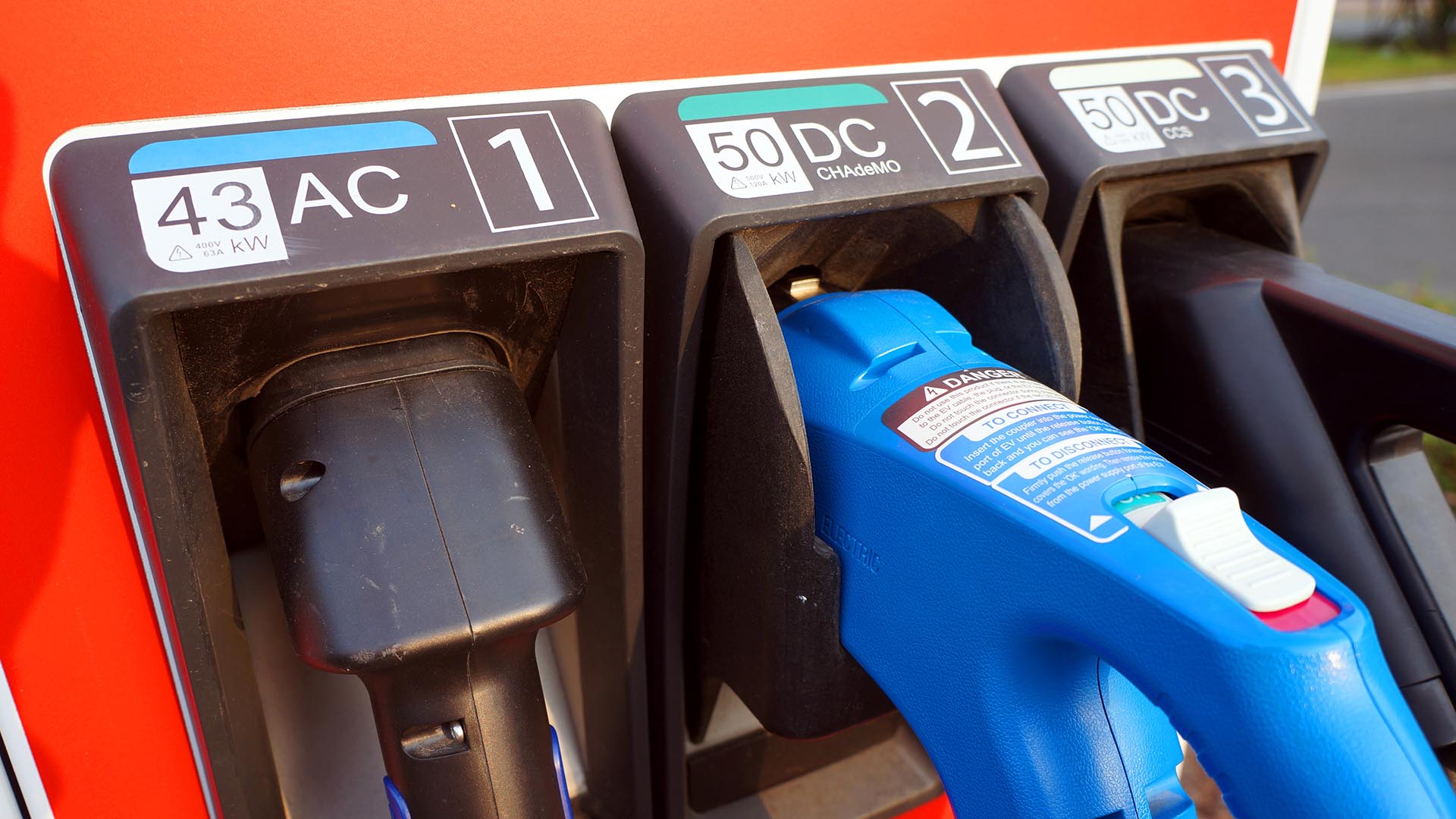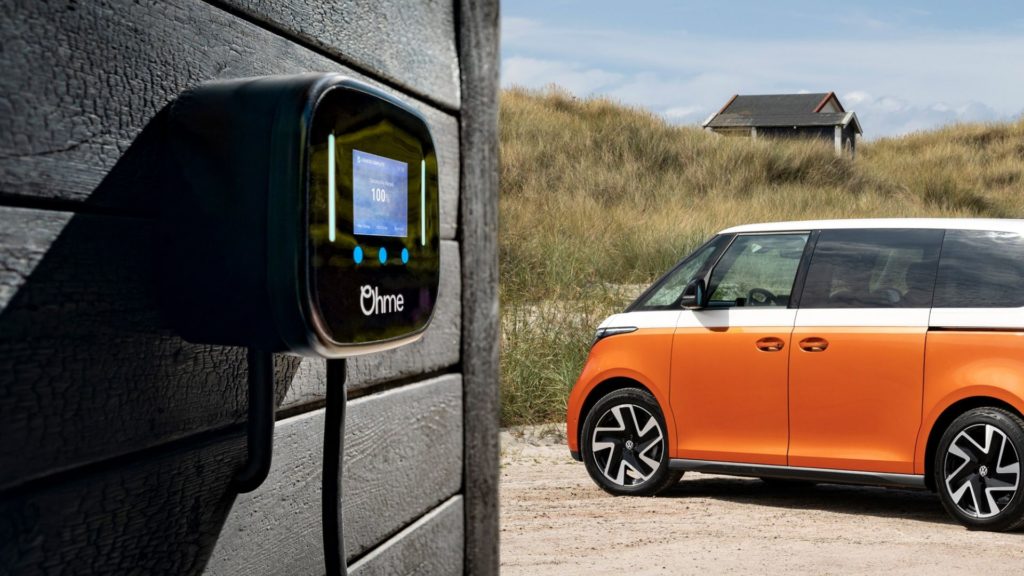AC and DC current are to EVs what petrol and diesel are to traditional combustion cars. You can think of them as ‘fuels’ that will keep your electric car battery topped up.
However, unlike when choosing the correct nozzle at the petrol station, you never need to worry about which fuel you put in your electric car; it’s all handled by the charging unit and the vehicle itself.
So, what is the difference between AC and DC electricity – and how does this affect charging times for your electric car?
What is AC?
AC stands for ‘alternating current’. Mains electricity from the grid is an AC supply, with around 230 volts entering our homes via each three-pin socket. According to energy supplier EDF, AC is ‘better for transporting current over long distances, which is why we use it for mains electricity’.

What is DC?
DC stands for ‘direct current’. Domestic appliances require a DC supply, which is why they have converters built into the plug.
Electric cars also rely on a DC supply, so they use an ‘onboard charger’ to convert power from AC to DC. This is then fed into the car’s battery for storage.
Charging your electric car
You don’t need to worry about the difference between AC and DC electricity when plugging in, but it’s worth knowing the impact they have on charging speeds.

The vast majority of home chargers in the UK use AC power, with the conversion to DC handled by the car. This slows the process, which means it takes longer for batteries to be recharged.
With the exception of Type 2 43kW devices, public rapid chargers supply DC directly to the car, speeding up the process. It’s why these chargers can potentially provide an 80 percent top-up in an hour or less.
Unfortunately, rapid chargers aren’t suitable for domestic installation, and using them is relatively expensive, so charging overnight at home is preferable if you can. You will find rapid chargers at motorway service stations and close to major roads, making them ideal for stop-offs on a longer journey.


[…] https://www.motoringelectric.com/charging/difference-between-ac-dc/ […]